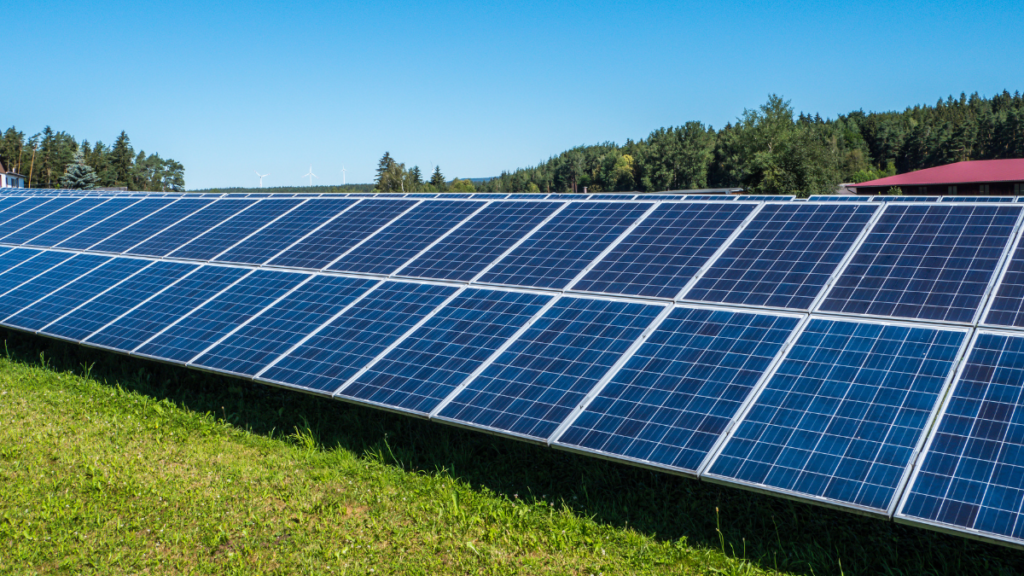Kuwait, a nation long associated with oil wealth, is now setting its sights on a greener and smarter future. The country’s leadership understands that the global shift towards sustainable energy cannot be ignored. As the world moves away from heavy reliance on fossil fuels, Kuwait is actively investing in renewable energy and modernizing its energy infrastructure through smart grids. This bold transformation not only highlights the nation’s commitment to sustainability but also its vision for long-term economic stability and energy security.
The journey is not without its challenges, but Kuwait’s determination to embrace change makes this transition both inspiring and powerful. By investing heavily in renewable energy projects and smart grid technologies, the country is ensuring a future where efficiency, sustainability, and innovation work hand in hand.
Kuwait’s Vision for a Sustainable Future
Kuwait’s energy policies are undergoing a remarkable transformation. The government has acknowledged the need to diversify its energy sources, reducing dependence on oil while meeting rising energy demands. The official vision aligns with the global move toward reducing carbon emissions and achieving cleaner air for future generations.
This vision is not just about replacing traditional energy with renewable alternatives but about building a holistic energy system. It involves integrating solar, wind, and other clean sources into the national energy mix, supported by digital infrastructure that ensures efficient distribution and consumption.
Importance of Renewable Energy in Kuwait
The geographic and climatic conditions of Kuwait make it ideal for renewable energy projects, particularly solar power. With abundant sunshine year-round, Kuwait has the potential to generate significant amounts of solar energy, enough to power homes, industries, and even support neighboring regions in the future.
Renewable energy also offers economic benefits. By producing clean energy locally, Kuwait reduces its reliance on oil for domestic consumption, leaving more oil available for export. This strategy not only supports national revenue but also strengthens the country’s resilience against fluctuations in global oil prices.
Beyond economics, renewable energy addresses environmental concerns. With rising global temperatures and climate-related risks, Kuwait’s move toward renewable energy reflects responsibility toward its people and the planet.

Smart Grids as the Backbone of Change
While renewable energy is essential, it cannot succeed without the right infrastructure. This is where smart grids come in. A smart grid is an advanced energy network that uses digital technology to monitor, manage, and optimize the flow of electricity.
For Kuwait, smart grids represent the backbone of its renewable energy transformation. They ensure that solar and wind energy are efficiently integrated into the system, balancing supply and demand in real-time. Smart grids also empower consumers by providing insights into energy usage, enabling households and businesses to reduce waste and save costs.
With smart grids, Kuwait can overcome the unpredictability of renewable energy sources. For instance, solar energy depends on sunlight, and wind energy depends on weather patterns. A smart grid can adjust distribution accordingly, ensuring a stable and reliable energy supply at all times.
Government Initiatives and Projects
Kuwait’s leadership has launched ambitious projects to accelerate renewable energy development. Large-scale solar parks, wind farms, and hybrid energy plants are already in the pipeline. These projects are designed not only to generate power but also to showcase Kuwait as a regional leader in renewable energy innovation.
Additionally, the government is encouraging private sector participation and partnerships with international companies. This collaboration brings global expertise, advanced technologies, and innovative solutions to Kuwait’s energy landscape. The combined effort ensures faster implementation and long-term sustainability.
The integration of smart grids is being prioritized in all new energy projects. From automated meters to digital monitoring systems, Kuwait is ensuring that the future of its energy infrastructure is intelligent, responsive, and efficient.
Economic and Social Benefits
Kuwait’s investment in renewable energy and smart grids extends beyond the environmental sphere. It creates new job opportunities in technology, engineering, research, and energy management. Young Kuwaitis are being trained in renewable energy fields, equipping them with skills that are in demand worldwide.
Economically, renewable energy reduces the burden of fuel subsidies and enhances financial stability. By investing in smart grids, Kuwait is also reducing energy losses, which translates into cost savings for the government and citizens alike.
On a social level, citizens gain from cleaner air, healthier environments, and more reliable electricity. The integration of renewable energy helps foster a sense of national pride, as people see their country contributing to global sustainability efforts.

Overcoming Challenges
Despite the promise, Kuwait faces challenges in its renewable energy journey. Harsh desert conditions, such as dust storms and high temperatures, can affect solar panel efficiency. The upfront cost of renewable projects and smart grid infrastructure also requires significant financial commitment.
However, Kuwait is addressing these challenges with innovation. Advanced solar technologies are being tested to withstand extreme weather, while international partnerships bring cost-effective solutions. The government’s clear policies and incentives also encourage investment, ensuring that progress does not slow down.
Regional and Global Impact
Kuwait’s renewable energy transformation holds significance not only for the nation but also for the Gulf region. As one of the world’s leading oil exporters, Kuwait’s shift sends a strong signal that energy diversification is essential for the future. This move inspires neighboring countries to accelerate their own renewable energy projects.
Globally, Kuwait’s investments contribute to the fight against climate change. By reducing carbon emissions and promoting sustainable practices, the country strengthens its role as a responsible member of the international community. This also enhances Kuwait’s reputation as a forward-thinking nation ready to embrace change.
The Role of Technology and Innovation
Technology plays a central role in Kuwait’s transition. From smart grid algorithms to energy storage systems, innovation ensures that renewable energy can be harnessed effectively. Research and development centers are working on improving efficiency, reducing costs, and creating smarter solutions tailored to Kuwait’s needs.
Artificial intelligence and data analytics are also being integrated into energy management. These technologies predict demand patterns, optimize distribution, and minimize waste. Such advancements make Kuwait’s renewable energy system both modern and future-proof.
Future Outlook
Looking ahead, Kuwait’s energy transformation is set to accelerate further. With continuous investments, the share of renewable energy in the national grid will grow significantly. Smart grids will become more advanced, offering even greater efficiency and resilience.
The future may also see Kuwait exploring hydrogen energy and advanced storage solutions. By diversifying energy sources even further, the country ensures long-term sustainability and economic security.
Most importantly, Kuwait’s journey serves as a message of hope. It demonstrates that even nations deeply rooted in oil-based economies can embrace change and thrive in a sustainable future.
Conclusion
Kuwait’s bold investments in renewable energy and smart grids mark a historic turning point for the nation. By blending tradition with innovation, Kuwait is redefining its role in the global energy landscape. The path may not be easy, but the determination to achieve sustainability is stronger than the challenges ahead.
This transformation is about more than technology or economics; it is about securing a brighter, healthier, and more resilient future for generations to come. As Kuwait continues this journey, it stands as a beacon of progress, showing the world that with vision and commitment, a sustainable future is not only possible but inevitable.
Also Read – The Role of Kuwait University in Advancing Tech Research



